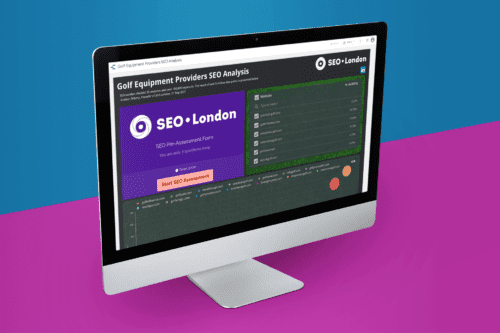What is External Links
What are External Links in SEO?
External links, also known as outbound links, are hyperlinks that point from one website to another. In the context of search engine optimization (SEO), external links play a crucial role in enhancing a website\’s credibility, authority, and visibility in search engine results pages (SERPs).
External links serve as a pathway for users to navigate from one website to another, improving the overall user experience. From an SEO perspective, these links also carry significant weight in determining a website\’s relevance and popularity, thereby influencing its search engine rankings.
Importance of External Links in SEO
External links are considered important by search engines such as Google, Bing, and Yahoo. These links act as endorsements or votes of confidence for a website\’s content. When reputable and authoritative websites link to a particular website, search engines interpret these links as a validation of that website\’s reliability, trustworthiness, and expertise in a given subject area.
Increase your online presence with Lukasz Zelezny, an SEO Consultant with over 20 years experience — schedule a meeting now.

Search engines evaluate the quality and relevance of external links to determine the credibility and authority of a website. Websites with a higher number of quality external links are more likely to rank higher in SERPs. Conversely, an absence of external links or the presence of low-quality or spammy links can negatively impact a website\’s search rankings.
Benefits of External Links
1. Enhanced Credibility and Authority: External links from reputable and authoritative websites bolster a website\’s credibility and authority. When other trusted sources link to your website, it signals to search engines that your content is reliable and valuable.
2. Improved Search Engine Rankings: High-quality external links are a key factor in improving search engine rankings. Search engines consider these links as a vote of confidence from other websites, leading to higher visibility and organic traffic.
3. Increased Organic Traffic: External links can drive referral traffic from other websites to yours. A well-placed link on a relevant and popular website can significantly enhance your website\’s visibility and attract potential visitors.
4. Discoverability and Indexing: External links assist search engine crawlers in discovering and indexing your website\’s pages. When search engine bots encounter a hyperlink, they follow it, allowing them to explore and index additional content on your website.
5. Networking Benefits: Building external links often involves reaching out to other website owners and establishing connections within your industry or niche. This networking can lead to collaborations, partnerships, and opportunities for further growth and exposure.
Best Practices for External Linking
To maximize the benefits of external links and avoid potential pitfalls, it is essential to follow best practices:
Get More Customers Online with Lukasz Zelezny, an SEO Consultant with over 20 years experience — schedule a meeting now.

1. Seek High-Quality and Relevant Websites: Focus on securing external links from reputable, authoritative, and relevant websites. Links from websites with a strong online presence and similar content to yours have the most impact on boosting your SEO.
2. Natural Link Building: Aim for natural link building without resorting to manipulative tactics or link schemes. Search engines can detect and penalize websites engaged in link spamming or excessive link exchanges.
What to ask an SEO Consultant
3. Diversify Anchor Text: Use a variety of anchor texts for your external links. A diverse anchor text profile helps search engines understand the context and relevance of the linked content.
4. Monitor and Disavow Toxic Links: Regularly monitor your external link profile to identify any low-quality or spammy links. If you detect harmful links that may negatively impact your SEO, disavow them using Google\’s disavow tool.
5. Engage in Guest Blogging: Guest blogging on reputable websites within your industry can be an effective strategy for acquiring high-quality external links. Ensure that your contributed content is valuable, informative, and aligns with the host website\’s audience.
In conclusion, external links serve as a powerful tool in SEO, contributing to a website\’s credibility, authority, and organic visibility. By following best practices and focusing on quality and relevance, website owners can harness the potential of external links to improve their search engine rankings and drive organic traffic.



